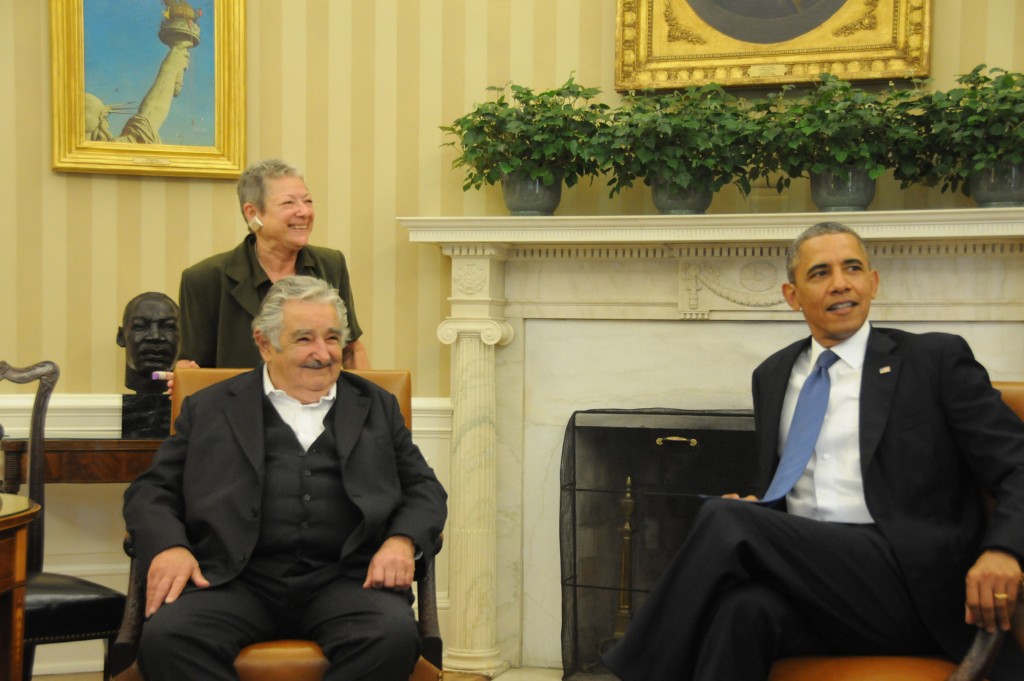EspañolThe developed world is characterized by the predominance of the rational. The beneficial effects are observable everywhere and embodied by the extraordinarily high standard of living enjoyed by their populations. Impressive development in science and technology, republican institutions, humanism, and clean cities are the traits that define them.
It may appear that in these sorts of cultures, where civilization has spread its splendid wings, all myth has been eradicated. Nothing, however, could be further from the truth.
We should recall that myths are anonymous narratives, collective creations, the products of imagination. By definition, they are irrational, but these stories look to satisfy very specific human needs. In primitive times, when men did not possess the tools of reason or advanced technologies, myths made sense of life’s mysteries. Gradually, philosophy has displaced mythology — fantastic worlds without basis in reality. The transition from the irrational to the rational is what allowed people to live better, longer, and healthier.
Ironically, many people who now enjoy the fruits of civilization and rationality remain fascinated by all things primitive. This has given rise to the myths of modernity, including that of the “noble savage.”
Today, José Mujica, the president of Uruguay, is the living embodiment of this fantasy. He has received attention from countless international media figures: the actress Mia Farrow, for example, has dedicated tweets to Mujica, expressing her admiration by saying, “The president of Uruguay is impressive.” Similarly, President Barack Obama considers him a “leader” in Latin America on issues of democracy and human rights. Mujica was even nominated for the Nobel Peace Prize by a German organization called the Drugs Peace Institute, with the argument that he contributed “to world peace by legalizing the cultivation and trade of cannabis.”
"@MiaFarrow: Guy in the middle is president of Uruguay. He gives 90% of his $12,000 monthly salary to poor ppl pic.twitter.com/gSS4FbfEKF"
— denis parfёnov (@prfnv) December 27, 2013
Now we pull back the veil that separates the illusion from harsh reality. Mia Farrow was amazed to see pictures that circulated all over the world, taken during the inauguration of Uruguayan Minister of the Economy Mario Bergara. In these photos, she noticed that Mujica, both in physical appearance and manner of dress, is someone who is not very well groomed. This led to the above tweets. Meanwhile, the New York Times used a photo of Mujica on its front page, featuring the president in the messy looking kitchen of his ranch home, several pots and pans visibly blackened with grime. The intention, obviously, was to convey the image of the superior, “natural” lifestyle led by Mujica.
What those admirers of the “noble savage” seem to ignore is the consequences to the rest of community life as a result of the president’s lifestyle. For example, there is the Broad Front, the ruling party that has governed Montevideo for the last 25 years. During that time, the deterioration of the city has been astonishing. The lack of hygiene in the streets and sidewalks of Montevideo is notorious. Several buildings are infested with rats and flies. Recently, the loads of garbage that clog the streets led the Ministry of Health to declare a sanitary alert.
Regarding the words Barack Obama had for Mujica as a champion of democracy and human rights, the US President seems to ignore Mujica’s public support for the dictatorial governments of Venezuela and Cuba. Mujica explicitly said that in Venezuela “solutions must come through the democratic process.” This is quite a cynical sentiment to express, considering the country has no free press, no separation of powers, no right to peacefully demonstrate, fixed elections, torture, murder with impunity, and representatives of the people can be “destroyed” or arrested. It’s a total farce.
In fact, in Uruguay, attacks on the independent press have begun as well. Among recent cases is that of photographer Gerado Pérez of El País, who was detained by police on Saturday for more than four hours, unable to contact anyone, for photographing an accident.

Finally, regarding the nomination of Mujica for a Nobel Peace Prize over the legalization of marijuana, we must keep in mind that the new law grants the state a monopoly on everything related to this market. Consequently, the plant must be grown on state land. Where did Mujica suggest would be the ideal place? Military barracks, of course! Marijuana crops will be maintained on military grounds and will be guarded by security systems similar to those that surround prisons: perimeter fencing, turrets, and military tents. The military will be responsible for caring for the production of marijuana.
One need not be too clever to see where this road leads: the potential corruption of the Armed Forces. Is Mujica following in the footsteps of Hugo Chávez?
As you can see, there is an unbridgeable gap between Mujica, the real person, and the myth. With incredible frivolity, the “satisfied gentlemen” of the First World will continue being “delighted” by Mujica. All the while taking good care to have him a safe distance away from their own countries. They will continue living in nations with republican institutions, human rights, and clean cities.
And the show goes on, as long its someone else who suffers the consequences.
 Versión Español
Versión Español












